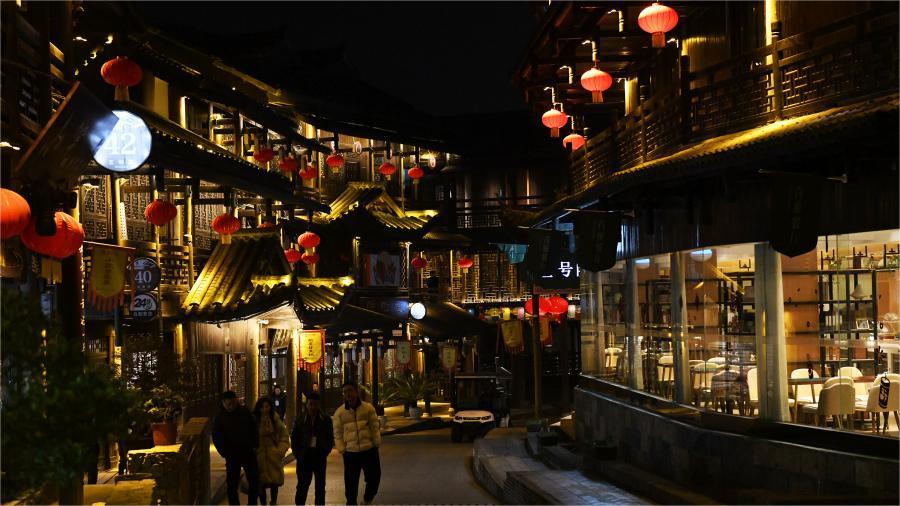How China's rest stations for outdoor workers create prospects for "new employment forms"
Editor’s Note:
Two sessions, our suggestions: What do Chinese people have to say about this year's two sessions?
A key event on China's political calendar, the annual sessions of China's national legislature and top political advisory body, known as the "two sessions," are set to take place in Beijing in March.
The second session of the 14th National People's Congress (NPC) is scheduled to open on March 5, while the second session of the 14th Chinese People's Political Consultative Conference (CPPCC) National Committee is slated to begin on March 4. Thousands of national lawmakers and political advisors, representing the Chinese public, will gather for this significant political meeting, which addresses every aspect of China's development and the wellbeing of its people.
The two sessions are expected to discuss numerous policies and initiatives aimed at improving the lives of the Chinese people.
Are the Chinese satisfied with their lives? What suggestions do they have for this year's two sessions? With these questions in mind, People's Daily Online interviewed locals in Beijing, focusing on topics frequently discussed at the two sessions such as improving living standards, elderly care, and increasing job opportunities for the public.
Let's hear what they have to say!
How China's rest stations for outdoor workers create prospects for "new employment forms"
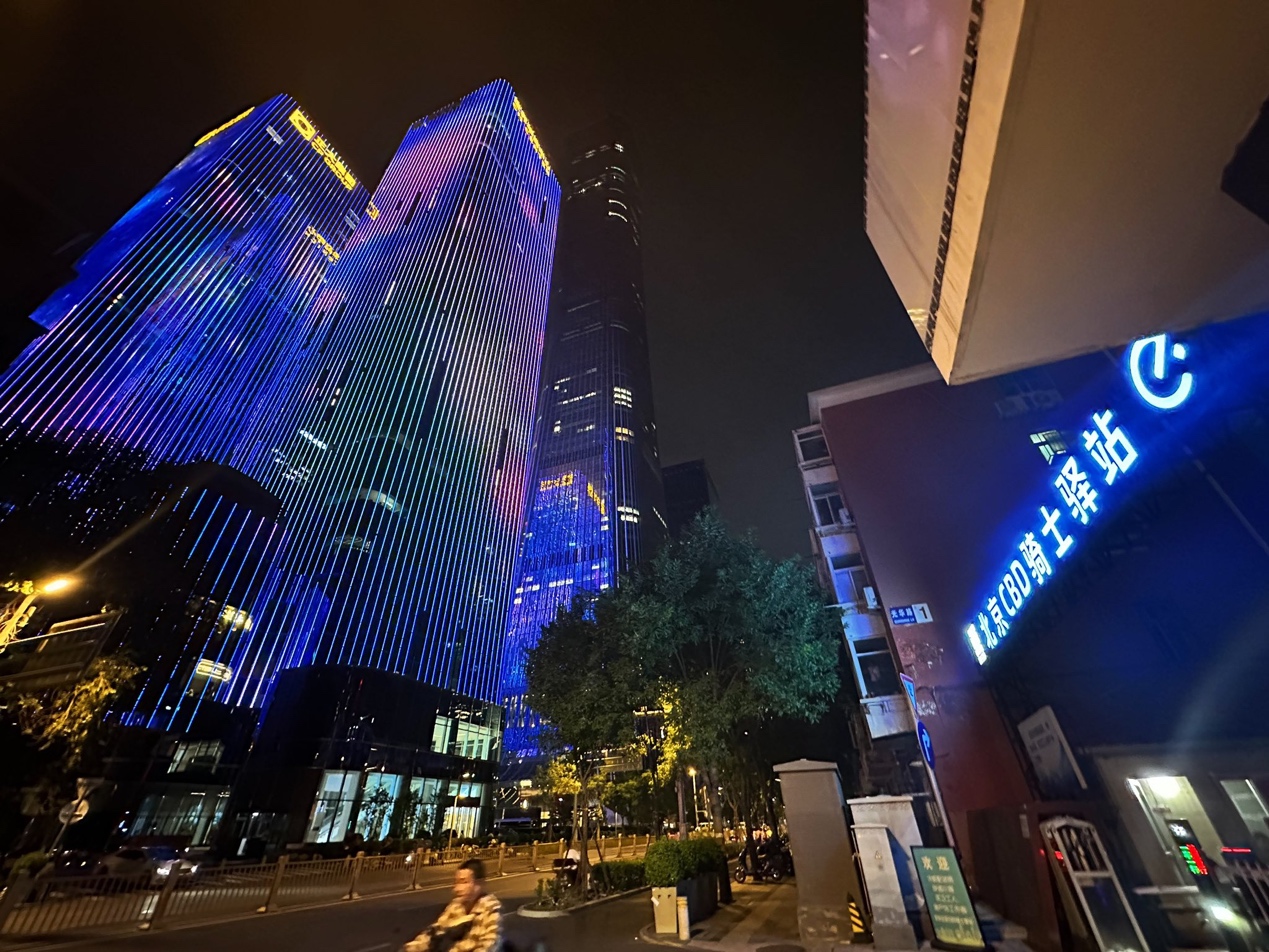
A "rest station" catering specifically to delivery riders and sanitation workers in Beijing's CBD area. (Photo by People’s Daily Online)
It’s eight in the morning, and a new workday begins for Li Xuezhen, a 41-year-old delivery rider in Beijing, after being roused from his slumber by the sound of the alarm clock. Food delivery services were in high demand in the capital city during the Spring Festival holidays, and many riders could make more than one month's pay in tips alone.
This is Li's fourth year working as a delivery rider in Beijing. Born in a small city in Central China's Henan Province, Li previously worked at a local factory, but his monthly pay of 3,000 RMB was not enough to support his family. His current job as a delivery rider brings in between 8,000 and 10,000 RMB per month, part of which he sends home to help out his kid, who is in second grade.
"My typical workday begins at 10 in the morning and ends at 10 in the evening, with a two-hour lunch break in between. I deliver food within a five-kilometre radius and complete about forty daily orders," Li told People's Daily Online.
Li is one of the 84 million people working in "new employment forms" such as ride-hailing and food delivery. The working conditions of delivery riders have been a recurring theme at each year's Two Sessions, and the government has issued several documents to safeguard their interests and rights.
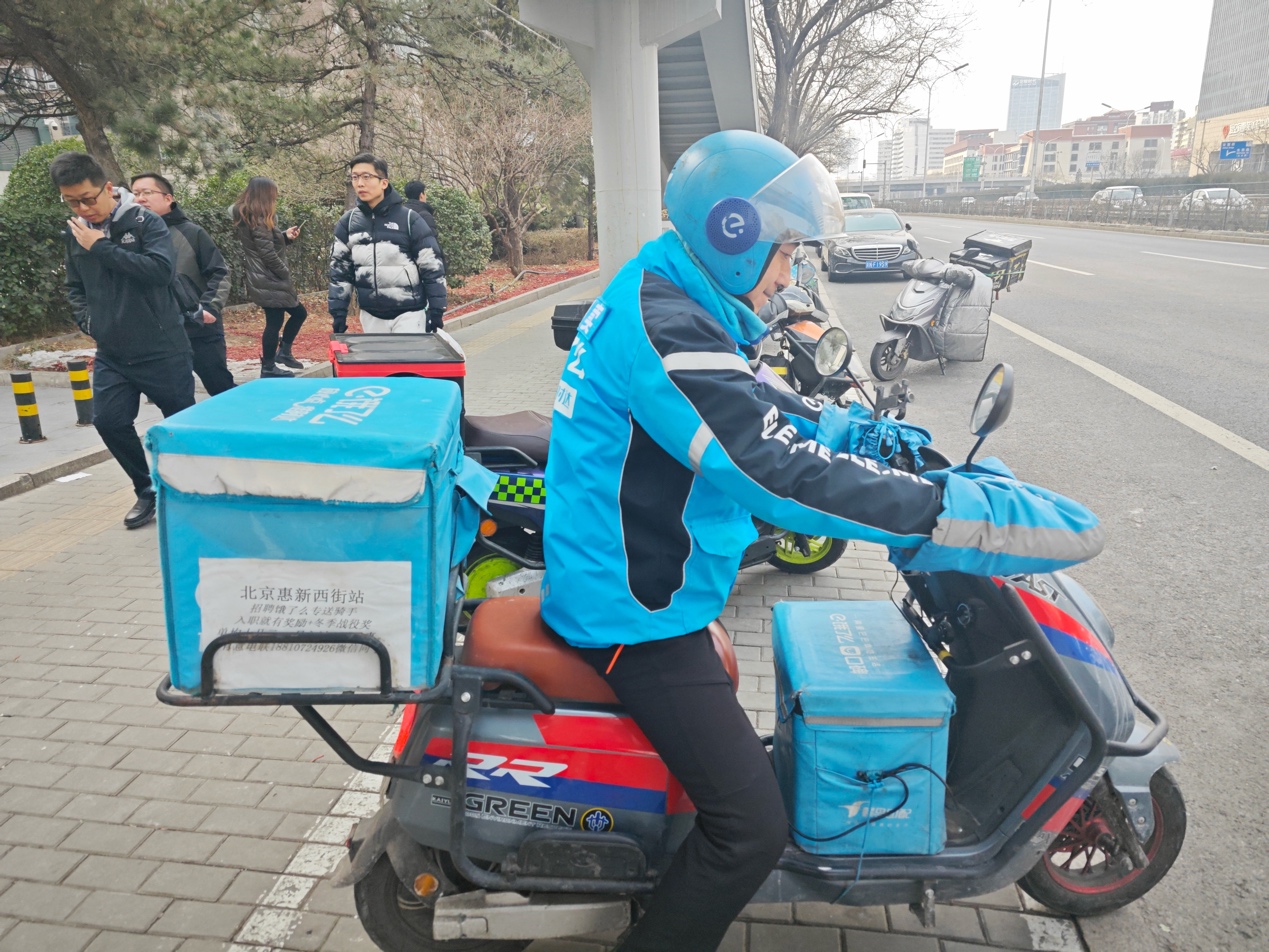
Li Xuezhen is one of the 84 million people working in "new employment forms" such as ride-hailing and food delivery. (People’s Daily Online/Tian Yi)
According to Li, working conditions for delivery riders have significantly improved in recent years, with supportive policies such as the establishment of rest stations where workers can charge their phones and heat their meals for free across the city.
There is a surge in demand for food delivery services between 11 am and 2 pm, and again between 5 pm and 8 pm. Li is busiest around these times. Between deliveries, he uses his rider service apps to locate "rest stations" throughout the city where riders can rest and use the restroom.
Many of Beijing's "rest stations" are built for outdoor workers. These facilities allow delivery riders and sanitation workers to charge their phones, read in the library, and use the facilities as needed, and the services are free.
Li has used one of the rest stations in Beijing's central business district. Outside the rest station is a sign that says: “We welcome outdoor workers such as delivery riders and sanitation workers to stop by and rest a while. Feel free to use this space to hydrate, cool off, reheat food, charge electronic devices, read a book, or even take a nap.”
After a long day’s work, Li sometimes visits a “Delivery Man Youth Club” established by the Beijing Communist Youth League Committee, where various entertainment and life services are provided, usually for free.
Most delivery workers in Beijing are young or middle-aged male migrant workers who have few friends in Beijing and are far from hometowns. The "Delivery Man Youth Clubs" were built to help them enjoy fuller spiritual lives and expand their social networks.
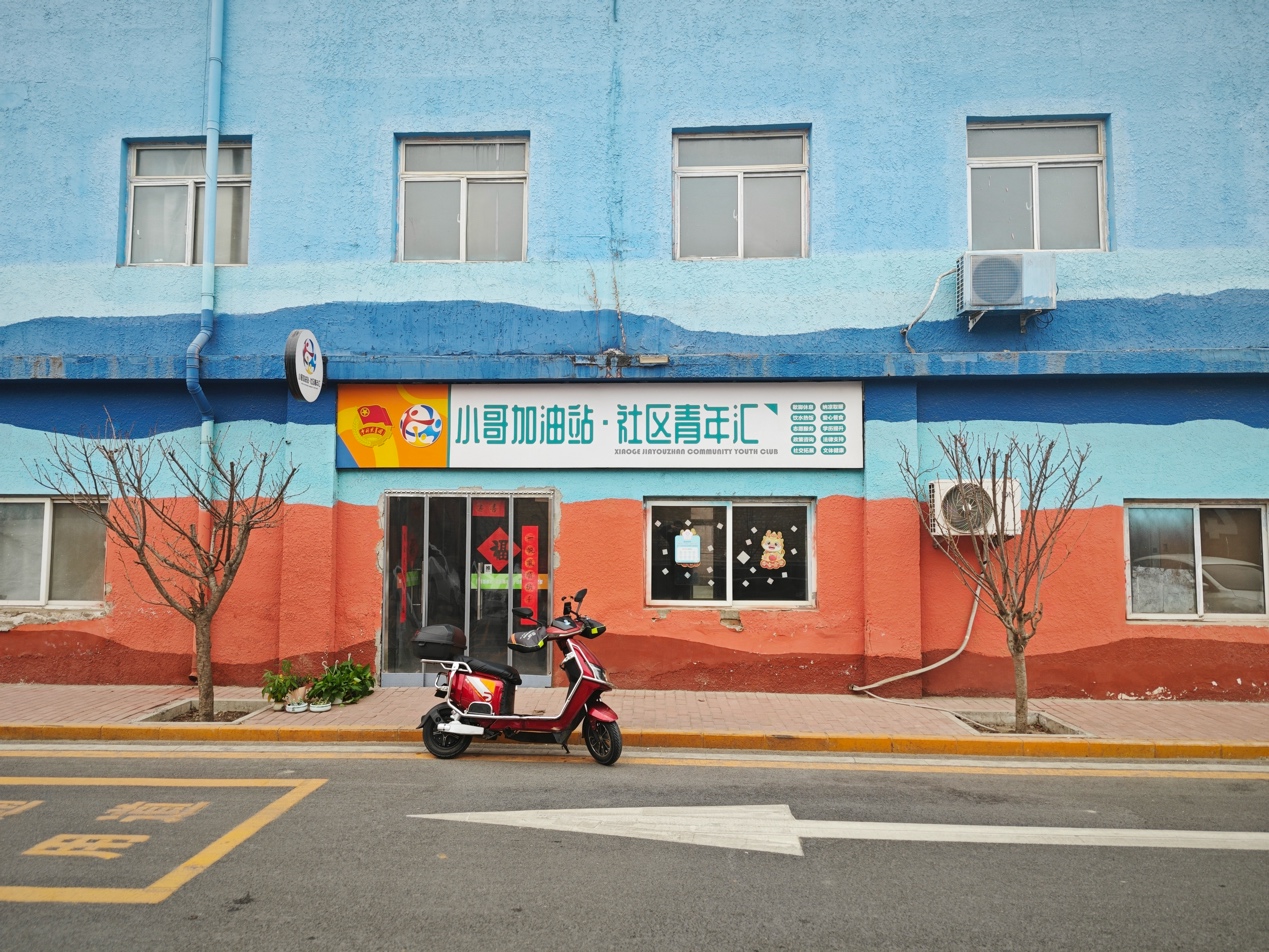
A Delivery Man Youth Club for delivery riders in Beijing. (People’s Daily Online/Tian Yi)
A 31-year-old delivery man named Chang Kai, the club's leader, told People's Daily Online that the group provides a supportive environment for delivery riders to meet new people and work on their personal growth.
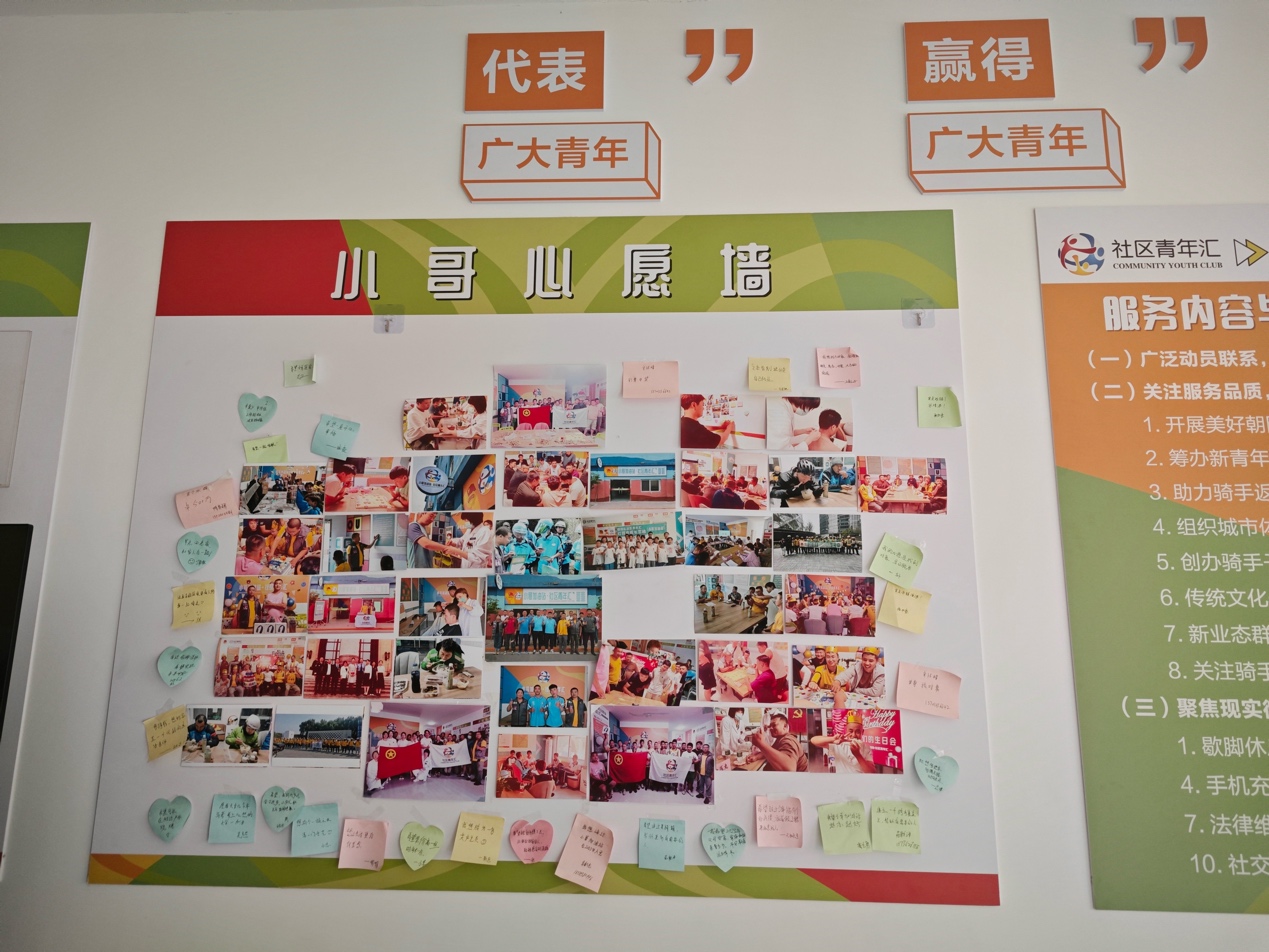
Posting photos and wishes on a "wish wall" is a fun way for delivery riders to express themselves at a Delivery Man Youth Club for delivery riders in Beijing. (People’s Daily Online/Tian Yi)
"Our clubs offer a variety of training courses for delivery riders looking to improve their skills. For example, we offered training to delivery riders who want to learn video editing, as many of them want to use social media to start businesses, and courses to educate them on how to repair computers and mobile phones," Chang explained.
Many delivery riders' families, particularly their children, do not live with them in Beijing. The club offers daycare services during the winter and summer holidays, so riders can bring their kids while they're at work. Chang usually takes the kids to see Beijing's sights while their parents are away.
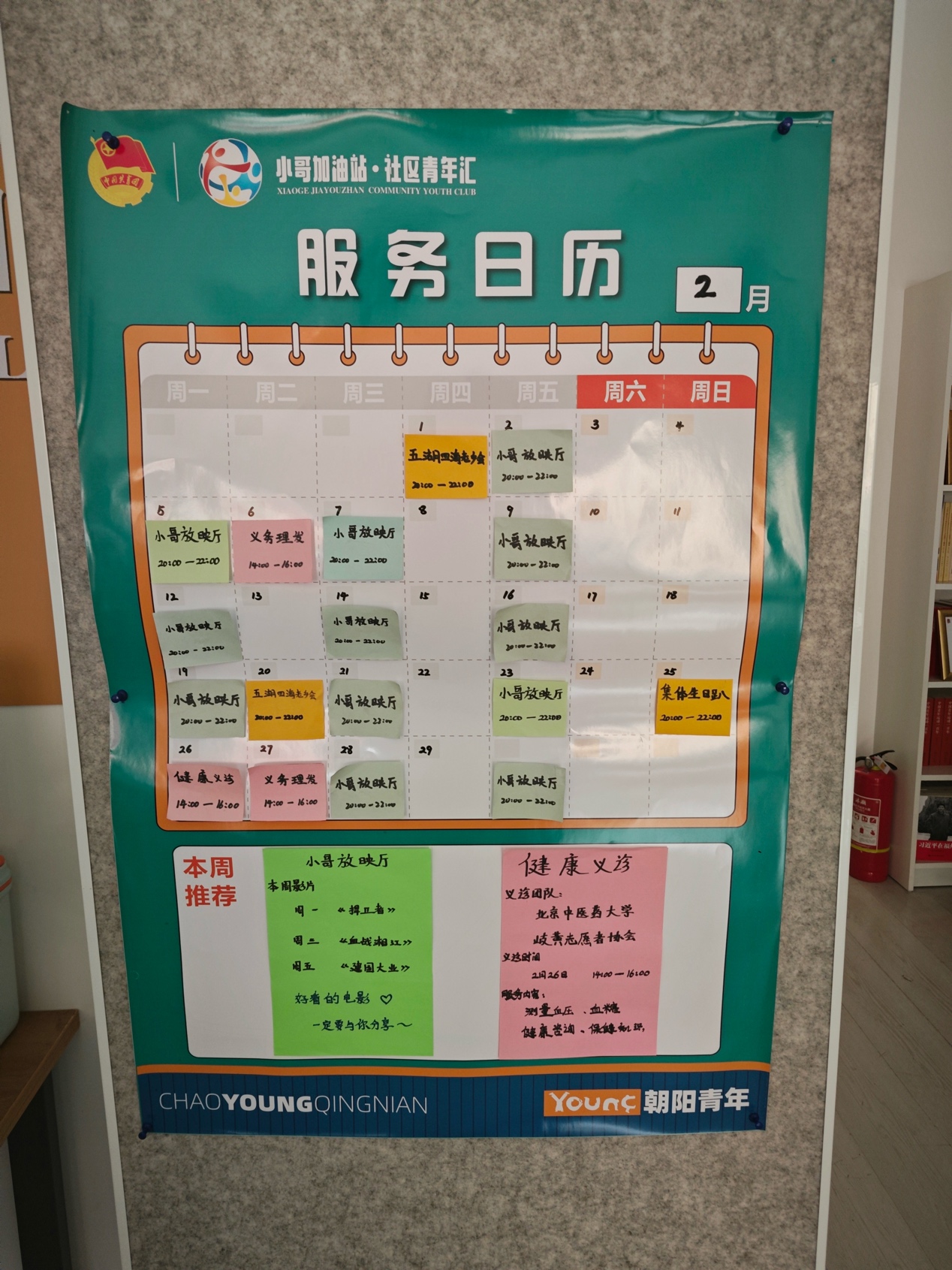
The monthly calendar at a Delivery Man Youth Club in Beijing provides insight into the delivery riders' lives after work. (People’s Daily Online/Tian Yi)
The monthly calendar at the youth club provides an insight into the delivery riders' lives after work. In February, two parties were hosted to help delivery riders network and make friends, as well as one party to celebrate the birthdays of delivery riders born that month. Two free haircuts and one free medical treatment were available, with doctors from local hospitals offering free consultations and helping delivery riders take their blood pressure readings.
Monday, Wednesday, and Friday are movie nights for the delivery riders to unwind and enjoy a movie.
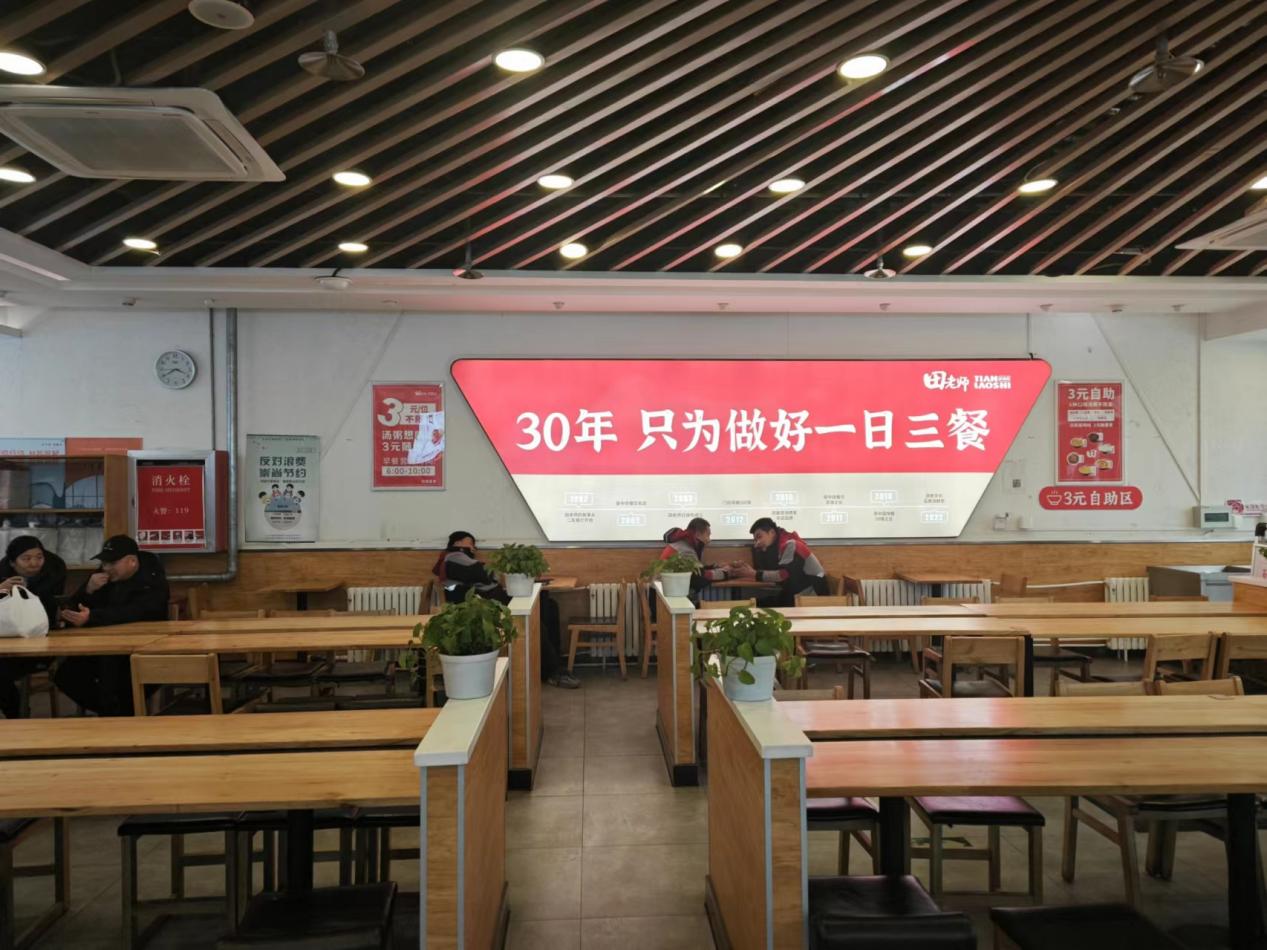
Local governments engage with businesses to provide affordable food for outdoor workers in Beijing. (Photo by Tian Yi/People’s Daily Online)
Since his working conditions have improved, Li's life has become easier, and he has developed a desire to help people more. He joined the Communist Party of China, and during the COVID-19 pandemic, he volunteered as a rider, offering delivery services to people in need.
At this year's Two Sessions, Li hopes that more favourable policies can be implemented to lower rent for delivery riders. Li lives with two other delivery riders in one room, and his share of rent and utilities is 1,200 RMB per month.
"Delivery riders have become deputies for the Two Sessions. I hope new policies will be implemented to enable us to live better lives," he said.
Right before this year’s Two Sessions, China’s Ministry of Human Resources and Social Security issued guidelines to improve the protection of the rights of workers engaged in new employment forms, such as ride-hailing and food delivery. The guidelines stipulate detailed and practical rules to guide platform businesses in improving labor management and addressing problems, including excessive working hours and platform rules that lack sufficient transparency.
According to the guidelines, workers involved in the platform economy, such as delivery, transport and home services, will start to enjoy minimum wage protection.
Photos
Related Stories
- Economists express confidence in growth this year
- Political advisors propose measures to enhance workers' rights protection, ‘invisible overtime’ highlighted
- All suggestions given to State Council in 2023 addressed: official
- Proposed agenda unveiled for annual session of China's top political advisory body
- China reports ‘hard-won’ economic results for 2023, as two sessions to focus on continued recovery
- Draft govt work report discussed at key meeting
Copyright © 2024 People's Daily Online. All Rights Reserved.






